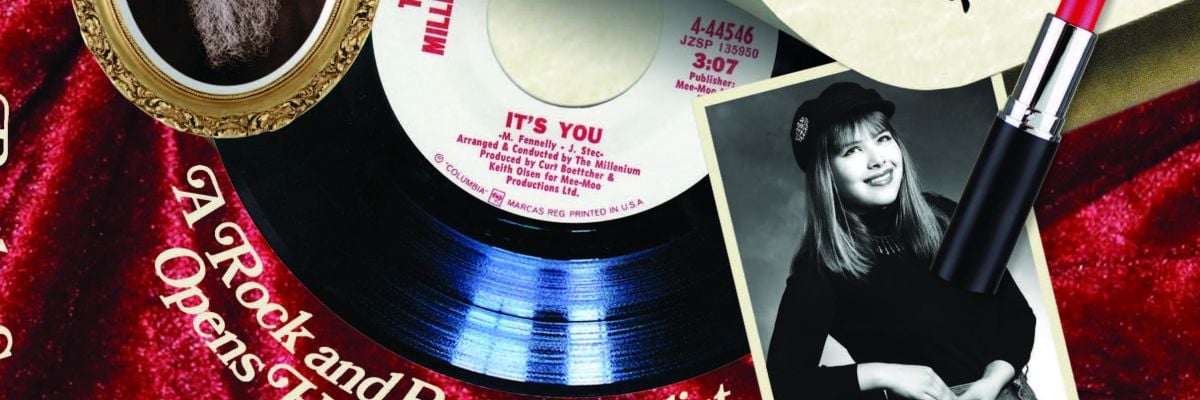
Thursday, October 30, 1986, 3:26 p.m. “It was in the city of shame / That I found I wasn’t to blame . . .”
Robyn Hitchcock’s “City of Shame” runs through my head as I briskly walk down Washington Square Park East, my newly heeled black-leather ankle boots making a satisfying tap on the pavement. I had just enough time after my afternoon class to dash back to my dorm to put on some makeup before trekking over to Tower Records for a performance and record signing by the eccentric and enigmatic British singer.
The signing isn’t until four, but I’ve got to be there by three-thirty to have any chance of seeing the stage. My boots don’t add much height, plus I am probably not the only fan who wants to take in Hitchcock’s good looks.
As I turn onto West Fourth Street, a young woman is trying to get the attention of passersby. “Free Bible! Free Bible!”
I turn my head to size her up. She has straight brown hair and is wearing a kind of generic college-student outfit—a plain sweater and jeans. The look is definitely more Midwest than Manhattan. A cornfed hick out to convert pagans in Sin City.
“Would you like a Bible?” she asks. “It’s free.”
“Sure, thanks.”
What the heck. Mom owns a Christian Bible; I might as well too. Anyhow, I can’t resist a free book.
My answer is rewarded with a smile and a green volume small enough to fit into my hand, its leatherette cover bearing the gold-engraved legend New Testament • Psalms • Proverbs.
It’s as if the Old Testament never happened. How like Christians to call something so truncated a “Bible”!
Thankfully, the woman doesn’t ask for anything in return, so I can keep walking toward Tower with my stride nearly unbroken. I stuff the bowdlerized Bible into my red leather pocketbook, where it will have to fight for breathing space with my Day-Timer calendar, ten or eleven lipsticks, and a retractable gold-toned metal case from Manic Panic containing a lip brush I hardly ever use.
My lipstick options include silvers, whites, and frosty nudes, along with the odd red, mauve, and magenta. And that’s just what I have on hand; I have many more lipsticks at my dorm. I buy one whenever I need a pick-me-up, and I have been needing a lot of pick-me-ups lately, especially since Bill dumped me for Liz. Each time, I excuse the expenditure by telling myself that this is the perfect lipstick and that, once I start wearing it, I am not going to need another.
Before I know it, I’m inside the doors at Tower, aptly named given its four levels of records and cassettes. The main floor is about the size of a tennis court, crammed with long aisles of display racks. At its center, several large racks have been pushed aside to make room for a platform that will serve as the stage.
I spy a large display at the right side of the stage—my right, near the staircase leading to the mezzanine. It advertises the new album, Element of Light, that Hitchcock and his band the Egyptians will be signing after their performance. The cover bears a black-and-white photo of Hitchcock sitting within the cleft of a rock, an electric guitar in his lap. His expression, introspective and inscrutable, reminds me of David Bowie minus the makeup.
My challenge is to squeeze into one of the aisles at an angle that will afford me a decent view. It’s not easy when the place is already crowded with a hundred hip fans clad in almost as many shades of black. A few paisley, striped, or polka-dotted shirts break up the monotony.
I find a spot next to a rack displaying Bon Jovi’s latest album—no one in this crowd will care that I’m blocking it—and stake my claim. It’s about forty feet away from the stage, but at least I’ll have a reasonably clear sightline if the leather-jacketed couple in front of me doesn’t move around too much.
Looking toward the stage, I can make out a cocktail drum kit. There is also a roadie in a threadbare T-shirt and faded jeans. He is strumming a few bland chords on a black Gibson guitar and fiddling with the knobs of a small Fender amp.
My eyes are searching the crowd for familiar faces but I don’t see anyone except Jack Rabid, editor of The Big Takeover fanzine, standing in his usual spot by the front, his cheekbones looking razor sharp in Tower’s headache-inducing fluorescent lights. Considering how prominent Jack is on the scene—all the bands know him and he knows them—he is actually very humble and down-to-earth. If only I could squeeze my way through to where he is, he would let me stand in front of him. But I can’t, and anyway I hate being pressed against the stage.
Wish my Jersey Beat editor Jim Testa were here, but he’s at his day job. Too bad. I wanted to get his thoughts on what I should ask the Smithereens when I interview them for The Bob. Jim’s known them since the days when their biggest claim to fame was being the house band at New Jersey’s Dirt Club. With his help, I could come up with some bright questions to distinguish me from the trendy critics who discovered them only after they made it onto MTV.
None of my schoolmates are in sight either, but that’s no surprise. I didn’t bother inviting any of them except my friend Kate, who is at her internship; I imagined the rest wouldn’t be interested.
When I first started at NYU, I had hoped to find friends there. Isn’t that what people are supposed to do at college? Instead, just as in high school, most of my friends are musicians and writers slightly older than me, burdened with day jobs. Nearly all are men. That in itself wouldn’t be so bad. But it ends up making my life complicated because either they like me romantically or I like them, and it never seems to match up that we like each other that way at the same time.
One hour later. Hitchcock still looks every bit as crushworthy, and his absurdist wordplay is still every bit as charming as when I caught him at Maxwell’s in Hoboken back in March. Between songs, he engages the audience with rapid-fire monologues—stream-of-consciousness tales concerning characters like customs agents, circus performers, and victims of bubonic plague who interact with wildly transmuted flora and fauna such as bees, sea creatures, and radishes.
I wish I could lose myself in Hitchcock’s songs. It would be the next best thing to losing myself in him.
His melodies are so engaging, with that almost baroque quality that the best songwriters had in the Sixties, my favorite era for pop music. But when I try to get inside his lyrics, I hit a brick wall. Occasionally he draws a word picture that betrays something powerful going on beneath the surface of his mind—something that’s deep and beautiful and sad. But then right away he changes the topic to fish eggs or bongos or something.
After playing a subdued number I don’t recognize, Hitchcock asks if there are any requests. Suggestions erupt from all sides. Some guy in the front shouts for “Queen of Eyes,” and I echo his cry as loudly as I can.
Hitchcock pauses for a brief moment and then strums some familiar chords that reverberate with a post-punk crackle. I screech my approval—it’s “City of Shame”!
Hearing the song live, I can understand the words better than I could when listening to them on record. Gosh, they’re dark.
It was in the City of Love
All the flesh I ate was never enough
Though I knew it wasn’t good for my soul
My body hungered for the ultimate goal
Sunday Will Never Be the Same is available now from the Catholic Answers shop.



